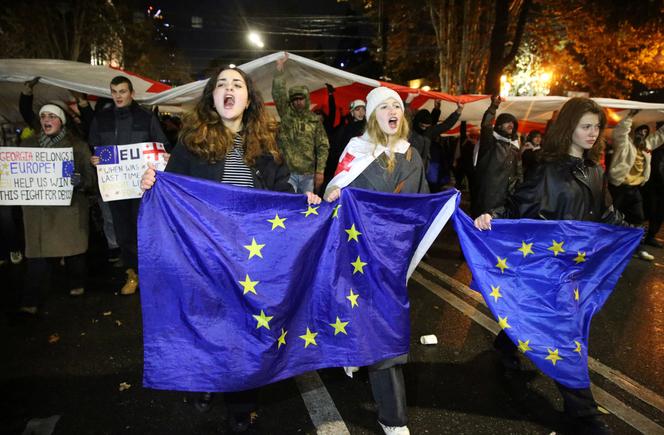


On Tuesday, December 17, Georgia's prime minister, Irakli Kobakhidze, took to social media to thank "the five countries" of the European Union who, at a meeting of the 27 member states' foreign ministers the previous day, had taken a stand in favor of the Tbilisi government, which has been the target of a strong popular protest movement for the past three weeks. He cited the five countries: "Hungary, Slovakia, Italy, Spain and Romania".
But, in fact, only Hungary and Slovakia had opposed sanctions against Georgia. One after the other, the Romanian, Italian and Spanish governments publicly contradicted the Georgian, revealing in the process a crude disinformation maneuver learned from a well-established teacher: Russia. On the contrary, all three governments condemned the violence with which the Georgian authorities are repressing the demonstrations and expressed their support for the measures proposed by the European Union's High Representative for Foreign Policy, Kaja Kallas, aimed at punishing those responsible for the repression. These measures could not be taken at a European level due to the vetoes of Hungary and Slovakia.
It's not enough, however, to set the record straight. Since October 26, the date of elections marked by fraud that returned the Georgian Dream party to power, Europeans have been embarrassed by the Georgian situation. Already very busy with Ukraine and Moldova, grappling with political and economic difficulties in several of their countries – and not the least – EU member states give the impression of simply hoping that the problem will eventually go away. The problem: a population stubbornly attached to Europe, at odds with a party that has governed for 12 years by capturing the state and increasingly openly pandering to the Kremlin's designs. When the Georgian Dream government decided at the end of November to leave Georgia's EU accession process, the population took to the streets. Demonstrations have happened daily for the past three weeks, despite brutal repression and over 400 arrests.
But the problem won't go away. The December 14 election of far-right, pro-Russian ex-footballer Mikheïl Kavelashvili as Georgia's new president by a parliament in which the opposition refuses to sit, showed the determination of those in power to maintain their line of rupture with Europe. The president elected in 2018, the pro-European and former French diplomat Salome Zurabishvili, whose term of office ends on December 29, supports the popular protest movement and intends to remain in office until a new, fraud-free parliament is elected.
The European states must express their solidarity more firmly with the Georgian democratic opposition, which is calling for new elections, and sanction those responsible for the repression without waiting for unanimity in Brussels, as the Baltic states have done. Otherwise, the risk is that Georgia will suffer the same fate as Belarus, now subjugated by Russia, and Zurabishvili the same fate as Sviatlana Tsikhanovskaya, the voice of the Belarusian opposition in exile. Letting Vladimir Putin get his hands on Georgia against the will of its people would send a message of renunciation that he would surely interpret in his favor for the rest of the Caucasus and for Ukraine.
Translation of an original article published in French on lemonde.fr; the publisher may only be liable for the French version.
